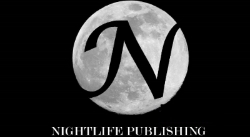One of my beta readers
ended her analysis of my new novel with the following statement:
"I didn't really feel an emotional
connection to the characters. I kept reading mostly because I really wanted to
know what happened next."
While this isn't the
most ideal situation, it does highlight something that writers should be aware
of as they build their narrative. There are two ways for readers to connect
with your story, one is intellectual the other is emotional.
Mental Connection and
the Spoiler Alert
When you hook a reader's
mind, they become invested in the outcome of your story. They want an answer to the universal
question "How does this story end?" In the best case scenario, the
events of your story are magnetic and hypnotic. Readers keep turning the
pages long past their bedtime because they want to know what happens next.
The best way to
understand this is to look at the concept of spoilers. The popularity of many
books, movies and TV shows hinge on the mystery of the outcome. Some people
feel their story experience is ruined if they find out the ending of the story before
they see it unfold. In 2013, this can lead to extreme behavior as people avoid
their social media, entertainment news and their real world friends to preserve
the unknown quality of the story.
Emotional Connection and
the Titanic Effect
There are some stories
that don't need a mysterious or shocking ending. They are popular in spite of,
or perhaps because, we know how the story will end. Stories that
transfer the pleasure or pain of the characters to the reader have emotional
resonance rather than mystery.
A high level of both empathy (where
the reader relates to who the character is and what they want) and sympathy (the reader wants the character
to achieve their goals) creates that emotional bond that people return to over
and over again.
Films often capture this
idea best, and Titanic is the
ultimate example. (Spoiler Alert!) Everyone who ever went to see that movie
knows the boat sinks at the end. When the movie starts, you already know who
lives and who dies. But people went to see the movie anyway. Hundreds of
thousands of people saw it multiple times. It is one of the highest grossing
films ever and it is based on an inherent spoiler. Holiday movies like a Christmas Story and classics like Casablanca tug on the emotions, but none
of them have the effect of the sinking ship.
The Best of Both Worlds
Of course, as
writers we would love to capture the hearts and minds of our readers at the
same time. We want to create the mental curiosity that makes them blast through
the book in one night and the emotional link that drives them to tell their
friends far and wide about your genius. (See On
Champions, Tastemakers and True Fans). The problem is that I don't have
some kind of formula for doing that. My best guess is that creating a
relatable protagonist in search of universal goals is the best way to capture
heats. Putting that character in a complex conflict that creates true dilemma
is the path that can capture minds. The art lies in weaving both
together seamlessly, without cliché or a heavy hand. I'm still working on that
part. Sometimes I hit the head, sometimes I hit the heart. Hopefully at some
point I’ll hit the bull’s eye.
So what do you think? Is
there another way to maintain a reader's connection to your book? How do you
keep the pages turning and readers rooting for your characters? Feel free to
share your comments below.
Have fun
G
G

